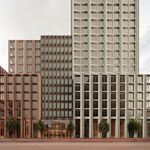S
samsonyuen
Guest
From: www.nytimes.com/2006/05/2...ref=slogin
_______________
Questions in Canada, but Only Some Can Ask Them
By IAN AUSTEN
Published: May 29, 2006
OTTAWA, May 28 — What if you gave a news conference and just about everyone left?
That was the situation facing Prime Minister Stephen Harper of Canada last week after about two dozen political reporters protested his new media relations plan by walking out.
Since the election of his minority Conservative government in January, Mr. Harper and his staff have repeatedly tried to change how Canada's news outlets deal with its prime minister. Mr. Harper's office is vetting minor government announcements, members of his cabinet have generally been off limits to reporters, and cameras have been blocked from covering the return of Canadian soldiers' remains from Afghanistan.
The issue that prompted last week's walkout was who picks the reporters who get to ask Mr. Harper questions. For decades, informal news conferences in the lobby of the House of Commons — known as scrums, after the rugby play where players pile atop one another — have been uncontrolled. In formal news conferences in Ottawa, held in a theater that is operated by the Canadian Parliamentary Press Gallery, a credentialing organization, journalists are selected by a member of the gallery's executive committee, which is elected by reporters, to ask questions, more or less on the principle of first come, first served.
Now, Mr. Harper's office wants reporters with questions to put their names on a list and let members of his media relations staff pick and choose.
The issue has been simmering for weeks, but last Tuesday, when officials from Mr. Harper's staff asked reporters to sign up before an informal news conference in the House of Commons lobby, about two dozen left. The handful of reporters who stayed did not submit their names and were told that Mr. Harper would not take their questions. Relations between the press and recent prime ministers have not always been smooth. Patrick Gossage, press secretary for Pierre Trudeau, the former Liberal prime minister, said that the government had provoked a similar protest when it considered moving news conferences from the Parliamentary Press Gallery's theater to a more photogenic government-controlled location. That plan was swiftly dropped.
Mr. Gossage, who is now president of Media Profile, a Toronto public relations firm, said that Mr. Harper's move was just the latest in attempts by prime ministers who followed Mr. Trudeau to introduce Washington-style control over reporters.
"The media relations model is now the White House," Mr. Gossage said. "That's what Harper dreams of."
Allan Levine, a historian in Winnipeg, Manitoba, and the author of a book about prime ministers and the media, agreed, saying, "Canadian journalists don't appreciate how well they've had things compared to how things are done in Britain and the United States."
Mr. Harper has also emulated the Bush administration by embracing local media outlets while battling the national press. Speaking to a local television station in London, Ontario, the day after the walkout, Mr. Harper was critical of the Ottawa press corps.
"I think what's unfortunate is when we make ourselves available to the media, the press gallery will not allow journalists to ask questions," he said. "I have trouble believing that a Liberal prime minister would have this problem. But the press gallery at the leadership level has taken an anti-Conservative view."
Edward Greenspon, editor in chief of The Globe and Mail, a Toronto newspaper that endorsed Mr. Harper during the election, said the fight was about principles, not politics.
"If the prime minister controls access to the prime minister, then certain journalists run the risk of being excluded from asking questions," Mr. Greenspon said. "I don't think the prime minister's remarks served him well. He looked a bit small-minded."
Mr. Greenspon said that he and other editors would consider an alternative system for selecting questioners, provided that it did not give the government control.
Later last week in Vancouver, Mr. Harper told local reporters, who had signed a questioners' list, that the press gallery fight was of little or no interest to Canadians. For Mr. Greenspon, however, the issue was not public opinion.
"Sometimes we write things people like, and sometimes we write things people don't like," he said. "Our job is not to curry public favor."
_______________
Questions in Canada, but Only Some Can Ask Them
By IAN AUSTEN
Published: May 29, 2006
OTTAWA, May 28 — What if you gave a news conference and just about everyone left?
That was the situation facing Prime Minister Stephen Harper of Canada last week after about two dozen political reporters protested his new media relations plan by walking out.
Since the election of his minority Conservative government in January, Mr. Harper and his staff have repeatedly tried to change how Canada's news outlets deal with its prime minister. Mr. Harper's office is vetting minor government announcements, members of his cabinet have generally been off limits to reporters, and cameras have been blocked from covering the return of Canadian soldiers' remains from Afghanistan.
The issue that prompted last week's walkout was who picks the reporters who get to ask Mr. Harper questions. For decades, informal news conferences in the lobby of the House of Commons — known as scrums, after the rugby play where players pile atop one another — have been uncontrolled. In formal news conferences in Ottawa, held in a theater that is operated by the Canadian Parliamentary Press Gallery, a credentialing organization, journalists are selected by a member of the gallery's executive committee, which is elected by reporters, to ask questions, more or less on the principle of first come, first served.
Now, Mr. Harper's office wants reporters with questions to put their names on a list and let members of his media relations staff pick and choose.
The issue has been simmering for weeks, but last Tuesday, when officials from Mr. Harper's staff asked reporters to sign up before an informal news conference in the House of Commons lobby, about two dozen left. The handful of reporters who stayed did not submit their names and were told that Mr. Harper would not take their questions. Relations between the press and recent prime ministers have not always been smooth. Patrick Gossage, press secretary for Pierre Trudeau, the former Liberal prime minister, said that the government had provoked a similar protest when it considered moving news conferences from the Parliamentary Press Gallery's theater to a more photogenic government-controlled location. That plan was swiftly dropped.
Mr. Gossage, who is now president of Media Profile, a Toronto public relations firm, said that Mr. Harper's move was just the latest in attempts by prime ministers who followed Mr. Trudeau to introduce Washington-style control over reporters.
"The media relations model is now the White House," Mr. Gossage said. "That's what Harper dreams of."
Allan Levine, a historian in Winnipeg, Manitoba, and the author of a book about prime ministers and the media, agreed, saying, "Canadian journalists don't appreciate how well they've had things compared to how things are done in Britain and the United States."
Mr. Harper has also emulated the Bush administration by embracing local media outlets while battling the national press. Speaking to a local television station in London, Ontario, the day after the walkout, Mr. Harper was critical of the Ottawa press corps.
"I think what's unfortunate is when we make ourselves available to the media, the press gallery will not allow journalists to ask questions," he said. "I have trouble believing that a Liberal prime minister would have this problem. But the press gallery at the leadership level has taken an anti-Conservative view."
Edward Greenspon, editor in chief of The Globe and Mail, a Toronto newspaper that endorsed Mr. Harper during the election, said the fight was about principles, not politics.
"If the prime minister controls access to the prime minister, then certain journalists run the risk of being excluded from asking questions," Mr. Greenspon said. "I don't think the prime minister's remarks served him well. He looked a bit small-minded."
Mr. Greenspon said that he and other editors would consider an alternative system for selecting questioners, provided that it did not give the government control.
Later last week in Vancouver, Mr. Harper told local reporters, who had signed a questioners' list, that the press gallery fight was of little or no interest to Canadians. For Mr. Greenspon, however, the issue was not public opinion.
"Sometimes we write things people like, and sometimes we write things people don't like," he said. "Our job is not to curry public favor."




